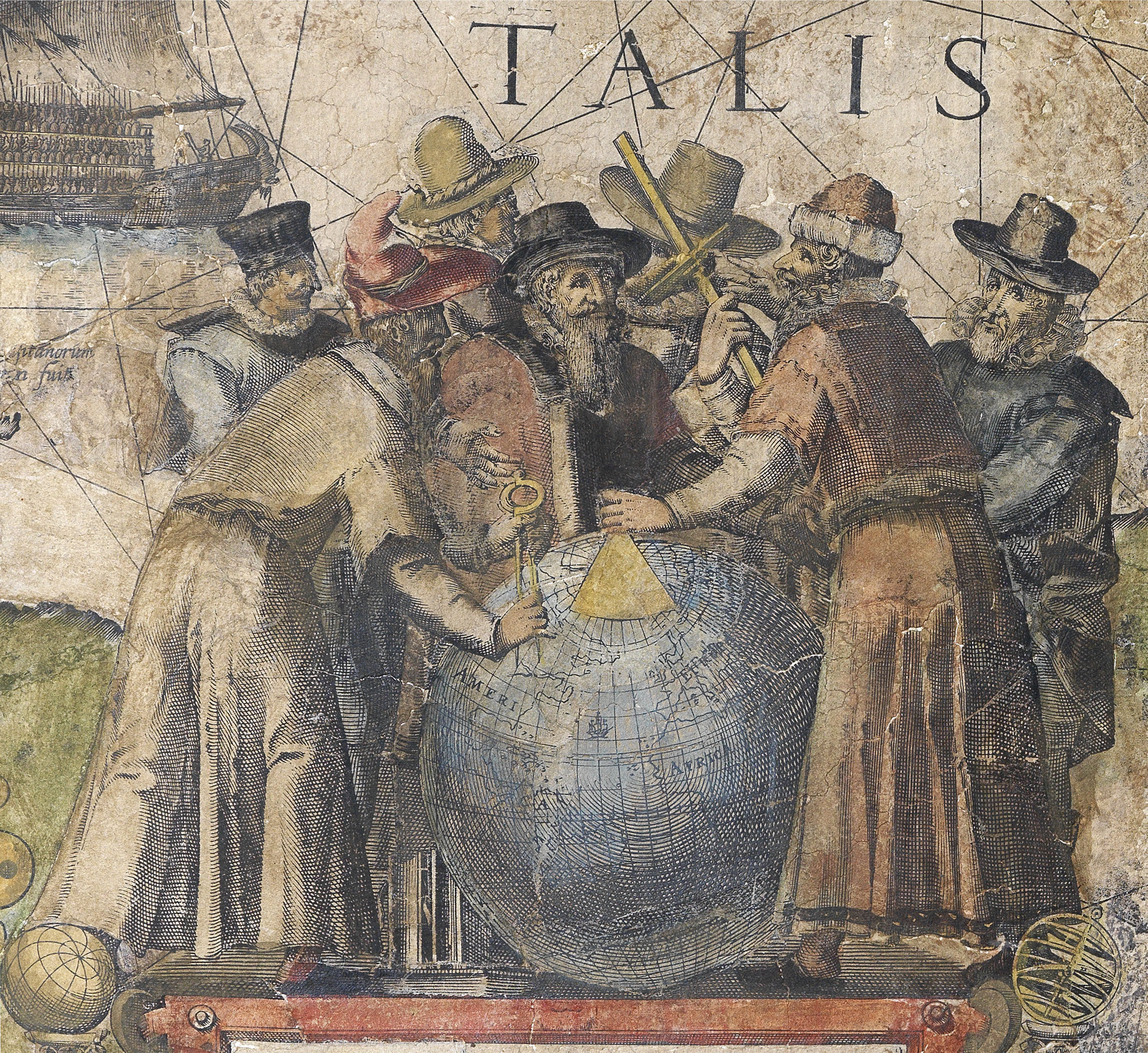Greenvile Collins

Greenvile Collins was an English naval officer, marine surveyor and chartmaker. Little is known about his early years, and nothing about his background. He emerges in 1669, serving with Sir John Narborough on his expedition to the Straits of Magellan (1669-1671); from 1677 to 1679, Collins was Master of the frigate Charles, and saw service in the war against Algiers, to suppress the corsairs operating from its ports. During these different expeditions, Collins maintained a logbook, and demonstrated his skill as a chartmaker.
With this experience, Collins proposed a new survey of the coasts of the British Isles. Many of the charts then in use were of Dutch origin or influence, and most were outdated. In 1681, with royal approval, he was made commander of the yacht Merlin, and ordered to survey British coastal waters, a task that eventually took him seven years. The task was to be partly financed by the king, and partly by Trinity House, but the king proved a tardy payer, and so Collins financed most of the project himself. There survives a petition from Collins to the king, probably from March 1683, requesting payment of the king’s promised subscription of £200 a year, as his creditors were threatening to have him arrested.
When the survey was completed, Collins had drawn about one hundred and twenty manuscript charts. The licence was granted in February 1692 and the atlas, Great Britain’s Coasting Pilot, published in 1693, probably in March of that year, containing forty-six charts, edited for publication.
Collins’s Great Britain’s Coasting Pilot was the first wholly English chart-book of England and Scotland, and a considerable advance on Dutch surveys. Everyone seemed delighted: Collins’s expenses and salary were paid, and he was promoted to be an Elder Brother of Trinity House. Then, after his death, his widow was granted a further £500, by way of thanks.
Although the author of the book, and vested with the copyright, it seems that Collins did not own the printing plates; the book was printed by Freeman Collins, said to be Greenvile’s cousin, and sold by Richard Mount. When the book was next reprinted, in 1723, it was by Mount’s heirs, the firm of Mount and Page.
The Coasting Pilot was much reprinted by Mount and Page, but with little change after the early editions; indeed, although not marketed as such, by the time of its last edition, in 1792, it was more of antiquarian than shipboard use.
 Rare Maps
Rare Maps  Rare Atlases
Rare Atlases  Rare Books
Rare Books  Rare Prints
Rare Prints  Globes and Planetaria
Globes and Planetaria 






